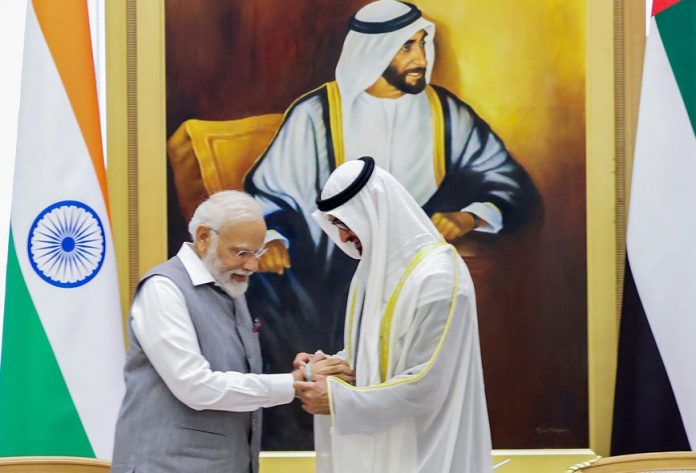The signing of the agreement between Indian Prime Minister Narendra Modi and the United Arab Emirates (UAE) to advance the India-Middle East-Europe Economic Corridor (IMEC) comes amid the escalating Israel-Hamas war. The pact, signed during Modi’s recent visit to the Gulf state, aims to enhance trade and transportation via a comprehensive sea and rail network.
What is the IMEC?
The IMEC is an ambitious infrastructure and trade initiative aimed at creating a major trade corridor that links India, the Middle East, and Europe. It seeks to facilitate faster transport of goods and enhance trade relations across these regions. The corridor is envisioned to include both rail and maritime routes, connecting India with the UAE, Saudi Arabia, Jordan, Israel, and eventually Europe. This initiative is seen as a strategic counter to China’s Belt and Road Initiative (BRI), aiming to diversify trade routes and reduce dependency on traditional shipping lanes that are under significant Chinese influence.
Strategic and Economic Implications
The agreement reflects a strategic partnership between India and the UAE, with broader implications for regional development, economic interconnectivity, and geopolitical dynamics. By fostering closer economic ties between India and the Middle East and further extending these connections to Europe, the IMEC aims to boost economic growth, enhance trade efficiency, and provide a faster trade route between the member states.
However, the project is not without challenges. The ongoing conflict between Israel and Hamas introduces a layer of complexity and uncertainty regarding the corridor’s implementation and future. The volatility in the region, marked by the conflict, could potentially disrupt trade routes, and threats to maritime security in the Red Sea by Yemen’s Houthi movement could pose security risks to infrastructure developments associated with the IMEC.
Political and Diplomatic Considerations
Despite these challenges, the initiative has garnered support from both the United States and the European Union. Announced initially at the G20 summit in New Delhi last September, the project reflects a concerted effort to build on the historical ties and cooperation between India and the UAE. During Modi’s visit, the two nations also signed a bilateral investment treaty and exchanged agreements on electrical interconnection, trade, and digital infrastructure, marking a significant deepening of their strategic partnership.
The initiative also has significant political and diplomatic connotations. It represents India’s effort to assert its presence on the global stage as a major economic player and a potential counterbalance to China’s expanding influence through the BRI. Additionally, by engaging with Middle Eastern countries, including those with whom Israel has strained relations, the corridor could play a role in reshaping regional alliances and diplomatic relations.


